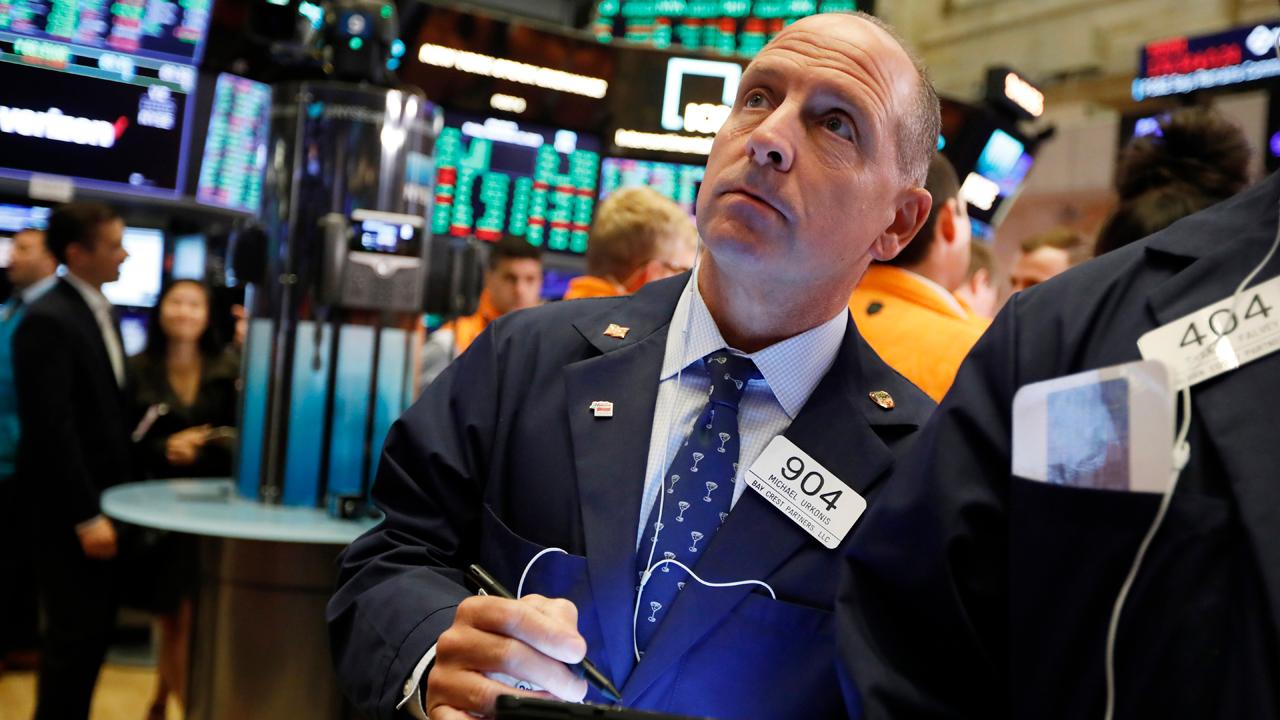New York Fed pumps $75B into protecting benchmark interest rate from spike
The Federal Reserve Bank of New York injected as much as $75 billion into money markets to quell a spike in interest rates that threatened the target range for the U.S. central bank's best-known benchmark.
The New York bank said its temporary infusion of cash into the markets on Tuesday, through overnight repurchase agreements in which it briefly takes ownership of securities from primary dealers -- major Wall Street firms such as JPMorgan Chase and Goldman Sachs -- was designed to keep the federal funds rate at 2 percent to 2.25 percent.
Rates for overnight repurchases secured by Treasury notes, which influence the federal funds rate, surged from 2.28 on Friday to 2.61 percent on Monday, reportedly spiking as high as 8 percent later in the day, according to Mark Cabana, a rates strategist at Charlotte, North Carolina-based Bank of America. The surge was driven by September corporate tax payments, which were due Monday and expected to pull $75 billion to $100 billion out of markets, resulting in lower demand for government notes and pushing up rates.
"Sustained federal funds rate pressure will likely raise questions about the Fed's ability to control money markets, especially as the federal funds rate approaches the upper end of the Fed's target range," Cubana wrote in a report.
That level, set by the central bank's monetary policy committee at its meeting at the end of July, is set to be reviewed this week amid indications that U.S. economic growth is slowing and pressure from President Trump to buoy it with a "big" rate cut.
The current U.S. expansion has spanned more than 10 years, making it the longest in the country's history, and sparking market speculation that a slump is due soon. Already, gross domestic product growth sagged to 2 percent mid-year, down from 3.1 percent at the start of 2019, and may drop lower.
Additionally, auto sales have dropped 2.4 percent and industrial production has shrunk 0.8 percent, a worse performance by both indicators than in most of the seven recessions since the 1960s, according to Bank of America. Economists have blamed the slowdown, in part, on a trade war with China initiated by the Trump administration, which has driven up supply costs for U.S. companies, forcing some to choose between raising prices and laying off workers.
Many have delayed plans to add employees or build new plants, prompting warnings from lawmakers that Trump risked undermining the benefits of GOP-led tax cuts in late 2017, which could erode the economic performance that had been widely viewed as a strength in his reelection campaign.
The president has largely rejected such claims, instead accusing the Fed -- and Jerome Powell, the chairman that he appointed -- of curbing U.S. growth by raising interest rates too quickly. The central bank boosted short-term rates four times in 2018, taking them to a range of 2.25 percent to 2.5 percent, before pulling back in July.
Trading in interest rate futures tracked by CME Group indicates a 47 percent chance the bank's monetary policy committee will cut rates by 25 basis points on Wednesday. The odds of a larger cut have dropped to nil from 22 percent a month ago.




















